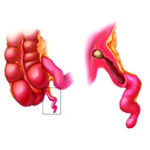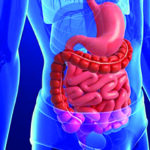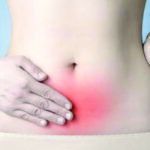Welcome to Womanz Health
Appendicitis Surgery in Delhi at Low Cost
Painless minimally-invasive laparoscopic appendicitis surgery
Let's Schedule Your Appointment
Why Choose Us
- Painless procedure
- No stitches that will leave behind scars on your body
- The best treatment of appendicitis
- Quick recovery
- Hasslefree Insurance Claim
- Minimum Cuts & Stitches


Our trusted Patient
"Best Healthcare Professionals To Treat U At Most Facilitated Centres With Ultramodern Technology And Personalized Attention & Care U Deserve"

Most Experienced Doctors Across India

Personalized Counselling Available

Quality Treatment at Affordable Price

EMI Facility
Available
Best Treatment
Why Womanz Health?
We have experience of over 35 years in healthcare in Laparoscopic Surgery Including Appendix. All our doctors are highly qualified & carry rich experience With women's health you can feel in safe hands.
Blend of Technology & Human Care is our expertise. All our centers are equipped with latest technology & updated machines when it comes to Appendicitis Surgery in Delhi. At the same time, we Ensure personalised counselling & care.
Best Hospital for Appendix Surgery in Mumbai at Lowest Cost has been our Forte. We have EMI facilities too.
Patients comfort & hassle free procedures is what we are committed to. We Ensure all Safety norms are taken care of & strive to provide the easiest approach.

What is the definition of appendicitis?
Appendicitis is a medical illness that causes severe stomach discomfort when the appendix gets inflamed and filled with pus. The appendix is a tiny pouch on the lower right side of your belly that connects to the big intestine (abdomen). Pain around the navel is a common symptom of appendicitis. As the inflammation progresses, the discomfort goes to the lower right side, where the appendix is located, and becomes persistent and intense. Appendicitis can affect anyone at any age, but it is most common in those between the ages of 10 and 30. We have the best doctors and medical coordinators at Womanzhealth who will look after you till you are relieved.
Causes

Blockage of the appendix's opening

Stool that seems like it's made of rock.

Any injury or trauma to the abdomen

Swollen lymph nodes in the intestines

Parasites or cancerous tumours
Symptoms

Pain near the navel that is dull

When you take heavy breaths, cough, or sneeze, the pain gets worse.

Nausea, vomiting, and inability to pass gas are all symptoms of this condition.

Appetite loss.

Fever of a low intensity
Treatment of Appendictis

Diagnosis
The doctor will go over your medical history, particularly any digestive disorders, and will inquire about your digestive symptoms, such as the time and quality of your most recent bowel movements, as well as whether the stool was streaked with blood or mucus. The doctor will then examine your lower right abdomen for pain. Your doctor will request blood tests to check for symptoms of infection and a urinalysis to rule out a urinary tract disease after the physical examination. To help confirm the diagnosis, your doctor may arrange an ultrasound or computed tomography (CT) scan. A chest X-ray may be required in very young children to rule out pneumonia.
Procedure
A surgery will be performed by the doctor to remove the infected appendix. Appendectomy is the name of the surgical procedure. Surgery should be done as soon as possible because it has the potential to burst 48 to 72 hours after the first symptoms appear. This has the potential to spread infection throughout the body and be lethal. Depending on the severity, two surgical techniques are performed. A small gadget called a laparoscope is used by the surgeon to remove the appendix through a small cut on the belly. A tiny video camera and surgical equipment are included in the laparoscope. Through the incisions, the tube, camera, and tools are inserted. The appendix is removed by the surgeon while he observes the procedure on a TV monitor. It is a technique that is performed with the least amount of invasiveness possible. To remove the appendix, a laparotomy is an open procedure in which one incision is made in the correct location of the belly or in the midline. In the event of a burst appendix, this treatment is used. The surgeon could either clean the abdomen and take the appendix (Burst appendicitis) or remove the remaining pus thru the abdominal wall and then remove the appendix (Burst appendicitis) (Appendicular abscess). Strenuous activities should be avoided for up to 6 weeks after surgery. After a comprehensive diagnosis, the optimum appendectomy approach is chosen.
Testimonial
Success Stories?
FAQ's
Frequently Asked Questions
Delaying treatment for appendicitis can result in problems. The appendix can rupture due to inflammation alone, sometimes as soon as 48 to 72 hours after the symptoms appear. A rupture can let bacteria, excrement, and air to flow into the abdomen, resulting in infection and potentially deadly consequences.
Mild fever, loss of appetite, and discomfort at the belly button are common symptoms of appendicitis. The discomfort may come and go at first, but it will gradually worsen and become permanent. Nausea and, in some cases, vomiting may occur after the onset of stomach pain.
An infection in the appendix causes it to grow and inflame, necessitating appendix surgery. The appendix becomes blocked with faeces and germs as a result of an infection, causing aberrant appendix function. Surgical removal of the faulty appendix is seen to be the quickest and most successful method. Doctors frequently prescribe surgery to prevent the appendix from bursting. The following are appendix symptoms that necessitate surgery:
● Severe stomach discomfort
● Pain that originates around the abdominal button and travels to the right side of the abdomen
● Inflammation of the abdomen
● Vomiting and nausea
● Decrease in appetite
● Constipation or diarrhoea
Appendectomy is the surgical procedure for removing the appendix. Appendicitis, a disorder in which the appendix becomes inflamed and infected, is treated with this operation. The easiest approach to get rid of appendicitis symptoms is to have an appendectomy. Appendectomy can be done either open or laparoscopically. After taking into account criteria such as the patient’s medical history and the severity of the ailment, the doctor determines the surgical strategy. Open appendectomy – The physician makes an open incision on the left side of the belly and removes the appendix via it in this surgery. After that, the surgeon stitches up the incision. This procedure is usually carried out in the event of a ruptured or burst appendix. Appendectomy laparoscopically – The surgeon makes a few tiny incisions in the belly and inserts a narrow, thin tube with a camera connected to it during a laparoscopic appendectomy. The photos from inside the abdomen are displayed on a screen via the camera. The doctor uses the pictures to direct the laparoscopic instruments to the appendix. The surgeon binds and removes the appendix before closing the incisions. People who are overweight or who cannot afford to spend a lengthy time healing should choose laparoscopic appendix surgery.
Both types of appendectomy are safe and don’t cause any problems for the patient. However, the following are some of the possible negative effects of appendectomy:
● infection
● bleeding
● a not-so-clear bowel movement
● organ damage in the vicinity
However, these issues or hazards are unlikely to arise if the procedure is performed by a skilled physician.
Every instance of appendicitis is unique, and as a result, recovery times may fluctuate depending on a variety of reasons. However, there are a few universal advantages to laparoscopic surgery for appendicitis that make it the best option. The benefits are as follows:
Only a brief stay in the hospital
After the surgery, there was no pain.
Recovery time after surgery is shorter.
Appendix surgery, like any other type of surgery, can be painful and uncomfortable. The discomfort is completely natural and will pass in a few days. The discomfort may move from the abdomen to other regions of the body in many cases, but unless the pain is terrible, there is no need to be concerned. In most cases, the pain goes away within 2-4 days. The doctor may prescribe pain relievers and antibiotics to help you feel better. Make sure you don’t take any medications without consulting your doctor first. Many people are able to recuperate from surgery without the use of painkillers. If your pain and discomfort last more than a week, you should see a doctor as soon as possible.
Know more about Woman’z Health
Womanz healthcare encompasses a number of things, starting with regular, annual pelvic exams and pap tests, treatment for sexually transmitted diseases, counseling, education, maternity (pre- and post-pregnancy care). Womanz Care can help with all of your women’s needs, whether you’re looking for a family practice doctor to help with your comprehensive women’s healthcare or an OB/GYN specialist for more complicated issues.


